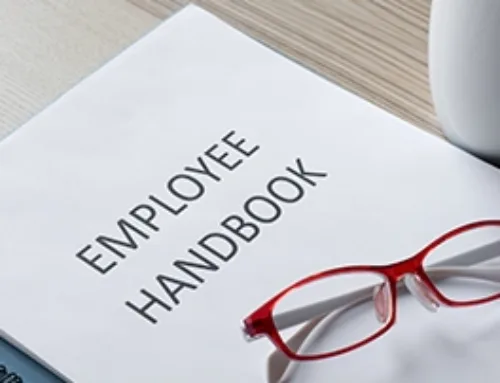What a HR Audit Really Reveals (And Why It’s Not About Catching Mistakes)
An HR audit is more than a checklist exercise. It’s a strategic review of how your organisation manages people, policies, and compliance. Far from being about fault-finding, it identifies risks, streamlines processes, and strengthens employee trust. This article explores what HR audits uncover and why they matter in Ireland and the UK.
What is an HR Audit (and What It Isn’t)
An HR audit is a structured review of how your organisation manages people, policies, and compliance. It examines contracts, procedures, records, and day-to-day HR practices against current legislation and best practice. The goal is to highlight strengths, pinpoint risks, and identify opportunities to work more effectively.
An HR audit is not about catching mistakes or assigning blame. It’s a preventative measure – similar to a health check – that ensures HR systems are fit for purpose. By spotting issues early, your organisation can act before they escalate into costly legal disputes or operational problems.
A well-run audit also looks beyond compliance. It assesses whether your HR processes support your business goals, whether policies are applied consistently, and whether employees are engaged and informed. The result is a clear, actionable picture of how your HR function can better protect and enable the business.
Common Issues HR Audits Uncover
An HR audit can reveal gaps that go unnoticed during daily operations. These findings range from missing documents to inconsistent procedures, and each one represents an opportunity to improve compliance, efficiency, and fairness.
Outdated or Missing Policies
Many organisations continue using employee handbooks and policies that have not been updated for years. Employment laws in Ireland and the UK change frequently, and policies that fail to reflect new entitlements or regulations create compliance risks. Outdated guidance also causes confusion for employees, making enforcement inconsistent.
Incomplete or Inconsistent Employee Records
Missing employment contracts, unsigned right-to-work documents, or unrecorded absences are common discoveries. Records may be stored differently across departments or systems, making it difficult to verify details quickly. Poor documentation weakens the company’s ability to respond effectively if a legal dispute arises.
Compliance Gaps
Audits often expose areas where legal requirements are not fully met. In Ireland, the Workplace Relations Commission can request working time logs, payslips, and contracts at any time. In the UK, employers face Home Office checks on right-to-work compliance and tribunal scrutiny over dismissal procedures. Early detection avoids penalties and claims.
Poor Policy Implementation and Training Gaps
Even when policies exist, they may not be consistently applied. Employees and managers may not have received training on critical topics such as anti-harassment measures or health and safety standards. An audit highlights where additional training is needed to ensure policies are not just words on paper.
Inefficient HR Processes
Manual or paper-based systems slow down operations and create room for errors. Disconnected HR tools can lead to duplicated work or inconsistent data. Audits identify opportunities to streamline workflows, integrate systems, and free HR teams to focus on strategic activities.
Inconsistencies and Fairness Issues
When managers apply performance reviews or disciplinary processes differently, employees lose trust. Inconsistent treatment increases the risk of grievances or claims. Audits reveal where procedures need standardising to ensure transparency and equal treatment across the organisation.
How HR Audits Help Employers Make Better Decisions
An HR audit delivers more than a list of problems to solve. It provides actionable insights to strengthen compliance, streamline operations, and enhance the employee experience. The result is better decision-making at every level of the organisation.
Ensure Legal Compliance & Reduce Risk
Audits verify that your HR policies, records, and processes align with current employment laws in Ireland and the UK. This early detection of breaches helps you avoid fines, tribunal claims, and reputational damage. Knowing your business is compliant brings peace of mind to both leaders and employees.
Optimise HR Processes & Boost Efficiency
Audits uncover inefficiencies such as duplicated work, slow approval chains, or outdated tools. Addressing these issues frees up time and resources. Streamlined processes help HR respond faster to employee needs and focus on initiatives that drive long-term business growth.
Improve Employee Experience & Retention
Employees value fairness, transparency, and clarity. Audits highlight areas where policies are applied inconsistently or communication is unclear. Correcting these issues builds trust, increases morale, and reduces turnover – saving recruitment and training costs in the process.
Inform Strategic Workforce Planning
Audit findings give leaders clear data on skills gaps, training needs, and workforce trends. This information supports smarter decisions on hiring, development, and restructuring, ensuring HR capabilities match the company’s growth strategy.
Foster a Culture of Continuous Improvement
Regular HR audits send a message that the organisation is committed to reviewing and improving how it manages people. This approach encourages accountability, adaptability, and ongoing development – qualities that help a business stay competitive.
HR Audits in Ireland vs. the UK: Key Differences
While HR audits follow similar principles in both countries, they must be tailored to each jurisdiction’s laws, enforcement bodies, and best practice guidance. Employers operating across borders need to ensure their audits address both sets of requirements.
Employment Law Frameworks
In Ireland, audits measure compliance against legislation such as the Employment Equality Acts, Unfair Dismissals Acts, Organisation of Working Time Act, and Safety, Health & Welfare at Work Act.
In the UK, audits reference laws including the Employment Rights Act 1996, Equality Act 2010, Working Time Regulations, and the Health and Safety at Work Act. These frameworks define minimum standards for contracts, pay, leave, and workplace safety.
Regulatory Oversight and Enforcement
Ireland has proactive inspections by the Workplace Relations Commission (WRC), which can request records such as contracts, payslips, and working time logs without prior notice.
In the UK, enforcement is more fragmented, with agencies like the Home Office checking right-to-work compliance and tribunals addressing disputes. Audits in the UK focus on readiness to defend practices if challenged.
Recent and Upcoming Legal Changes
In Ireland, recent reforms include statutory sick pay increases, new parental leave entitlements, and the right to request remote work.
In the UK, changes include extended flexible working rights, updates to holiday pay calculations, and evolving post-Brexit employment regulations. Audits ensure policies and contracts reflect these updates.
Best Practice Guidance
In the UK, the ACAS Code of Practice shapes how disciplinaries, grievances, and consultations should be handled – while not law, it influences tribunal decisions.
In Ireland, WRC Codes of Practice set expectations for fair procedures, equality in the workplace, and handling disputes. Audits review whether your procedures align with these standards.
Conclusion – Proactive Auditing for a Stronger HR Function
An HR audit is a forward-looking investment in your organisation’s stability, efficiency, and workplace culture. It helps you meet your legal obligations in Ireland and the UK, keeps your processes effective, and ensures your people are treated fairly and consistently. Rather than finding fault, it gives you the clarity to improve with confidence.
By uncovering outdated policies, compliance gaps, and inefficiencies before they become problems, you gain the opportunity to address them on your terms. The result is a more resilient HR function that supports your business goals, protects your reputation, and strengthens employee trust.
Contact HR Team for professional HR consultancy and audit support. Our experienced consultants will help you review, refine, and reinforce your HR practices so your business thrives in both Ireland and the UK.
FAQs – HR Audits in Ireland and the UK
What is the main purpose of an HR audit?
An HR audit reviews your HR policies, processes, and records to ensure compliance with employment laws, improve efficiency, and enhance fairness. It’s a preventative, strategic exercise designed to identify risks and opportunities before they impact your business.
How often should a company conduct an HR audit?
Most organisations benefit from an HR audit once a year. Additional audits are recommended after major legal changes, organisational restructuring, or rapid business growth to ensure policies and procedures remain compliant and effective.
What are the key differences between HR audits in Ireland and the UK?
In Ireland, audits align with laws such as the Organisation of Working Time Act and may prepare you for proactive inspections by the Workplace Relations Commission. In the UK, audits focus on compliance with laws like the Employment Rights Act and Equality Act, with readiness for tribunal defence being a key priority.
What does an HR audit checklist include?
A typical HR audit checklist covers employment contracts, right-to-work checks, employee handbooks, HR policies, training records, health and safety documentation, payroll and leave records, performance management processes, and grievance or disciplinary procedures.
Can HR Team carry out HR audits for businesses in both Ireland and the UK?
Yes. HR Team provides HR consultancy and HR audit services tailored to the legal and best practice requirements of both jurisdictions, ensuring your organisation meets all compliance standards and operates with consistent, effective HR processes.



